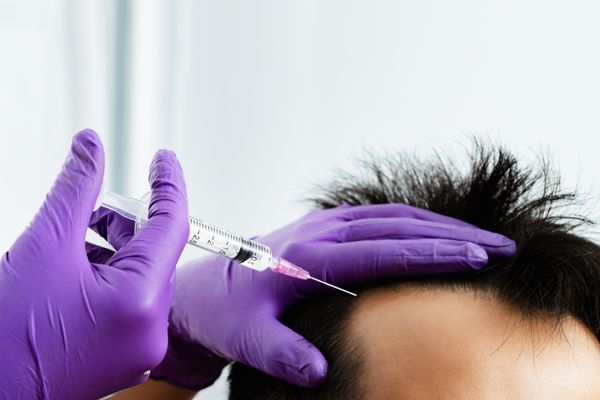Hair Transplant Tips
03/07/2023
Hair Transplant Tips: A Guide to Successful Restoration
Hair loss can have a significant impact on our self-esteem and confidence. Fortunately, hair transplant procedures offer a viable solution for those seeking to restore a fuller, more youthful head of hair. If you're considering a hair transplant, it's important to be well-informed and prepared. Here are some essential tips to help you navigate the hair transplant process and achieve successful results.
Choose an Experienced Hair Transplant Surgeon:
Selecting a skilled and experienced hair transplant surgeon is crucial for achieving natural-looking results. Research the credentials, expertise, and track record of potential surgeons. Look for those who specialize in hair restoration procedures and have a proven history of successful outcomes. Consultation appointments can provide an opportunity to assess their knowledge, evaluate before-and-after photos, and ask questions about their techniques.
Understand Different Hair Transplant Methods:
There are different hair transplant methods available, such as Follicular Unit Transplantation (FUT) and Follicular Unit Extraction (FUE). Familiarize yourself with these techniques to understand their differences, advantages, and potential limitations. Each method has unique considerations, so consult with your surgeon to determine which approach is most suitable for your specific needs.
Set Realistic Expectations:
While hair transplant procedures can yield remarkable results, it's important to set realistic expectations. Understand that the process takes time, and final results may not be immediately apparent. Hair growth after transplantation occurs gradually, and it may take several months for the transplanted hair to fully mature. Discuss the expected timeline and potential outcomes with your surgeon to gain a clear understanding of what to expect.
Follow Pre-Surgery Guidelines:
Prior to your hair transplant procedure, your surgeon will provide you with specific pre-surgery instructions. These may include avoiding certain medications, quitting smoking, and refraining from alcohol consumption. It's important to strictly follow these guidelines to ensure the best possible surgical outcome and minimize any potential risks.
Take Care of Your Scalp and Hair Post-Surgery:
After the hair transplant procedure, proper care of your scalp and transplanted hair is essential. Your surgeon will provide you with detailed post-operative care instructions. These may involve gentle hair washing techniques, avoiding excessive sun exposure, refraining from strenuous physical activities, and using recommended hair care products. Adhering to these guidelines will promote optimal healing and help protect the newly transplanted hair.
Patience and Commitment:
Hair transplant procedures require patience and commitment. It's important to understand that hair growth and full results can take time. Be prepared for temporary shedding of the transplanted hair in the initial weeks following the procedure. However, with patience and proper post-surgery care, you will gradually see new hair growth, leading to a fuller and natural-looking head of hair.
Follow-up and Maintenance:
Regular follow-up appointments with your surgeon are crucial for monitoring progress and addressing any concerns. They can provide guidance on long-term hair care, maintenance, and potential additional treatments to further enhance your results. Maintaining a healthy lifestyle, managing stress, and following a proper hair care routine can also contribute to the long-term success of your hair transplant.
Hair transplant procedures offer an effective solution for restoring hair and regaining confidence. By selecting a skilled surgeon, setting realistic expectations, and following pre- and post-operative guidelines, you can increase your chances of achieving successful results. Remember to have patience throughout the process, and consult with your surgeon for personalized advice and guidance at each stage of your hair restoration journey.
Note: The above blog post serves as a general guide to hair transplant tips. It's important to consult with a qualified hair transplant surgeon to receive personalized advice based on your specific hair loss condition and goals.

